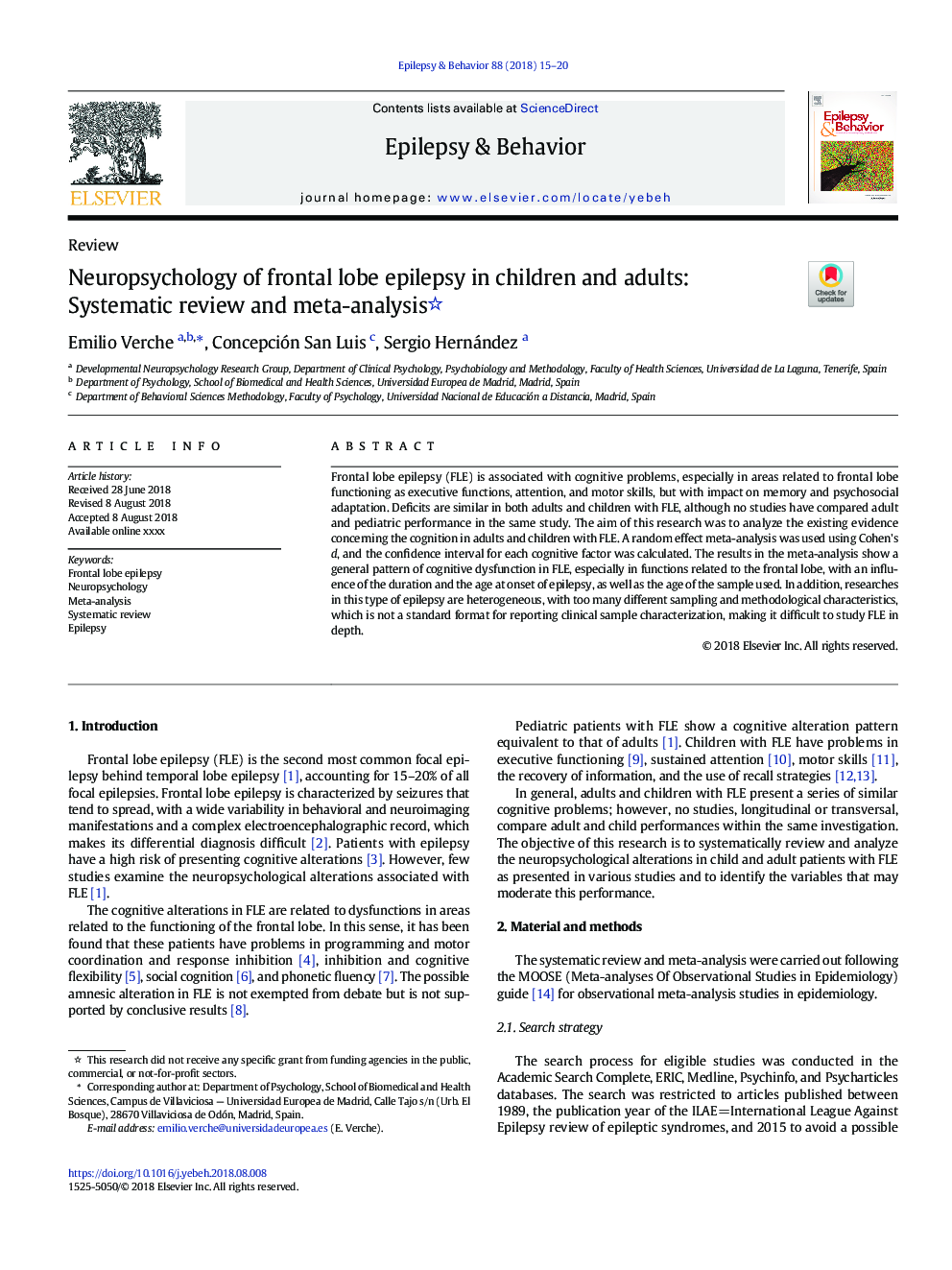| Article ID | Journal | Published Year | Pages | File Type |
|---|---|---|---|---|
| 10148585 | Epilepsy & Behavior | 2018 | 6 Pages |
Abstract
Frontal lobe epilepsy (FLE) is associated with cognitive problems, especially in areas related to frontal lobe functioning as executive functions, attention, and motor skills, but with impact on memory and psychosocial adaptation. Deficits are similar in both adults and children with FLE, although no studies have compared adult and pediatric performance in the same study. The aim of this research was to analyze the existing evidence concerning the cognition in adults and children with FLE. A random effect meta-analysis was used using Cohen's d, and the confidence interval for each cognitive factor was calculated. The results in the meta-analysis show a general pattern of cognitive dysfunction in FLE, especially in functions related to the frontal lobe, with an influence of the duration and the age at onset of epilepsy, as well as the age of the sample used. In addition, researches in this type of epilepsy are heterogeneous, with too many different sampling and methodological characteristics, which is not a standard format for reporting clinical sample characterization, making it difficult to study FLE in depth.
Related Topics
Life Sciences
Neuroscience
Behavioral Neuroscience
Authors
Emilio Verche, Concepción San Luis, Sergio Hernández,
